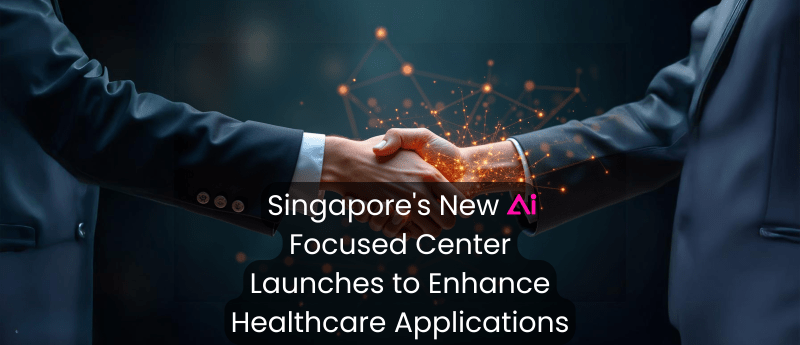Singapore’s New AI Focused Center Launches to Enhance Healthcare Applications

The use of AI in healthcare is rapidly revolutionizing the sector and enhancing the way medical services and treatments are managed and delivered. To further integrate AI, Nanyang Technological University, Singapore (NTU Singapore) and the National Healthcare Group (NHG) have joined forces for a new center that aims to bridge the gap between innovative AI technologies and their practical applications in medicine.
Collaborating to Accelerate the Useof AI in Healthcare
AI and machine learning have already made significant progress across the healthcare sector. This joint venture highlights a further commitment to explore new opportunities.
The pick up of AI in clinical practice across Singapore has been slower than other nations. However there have been some recent advancements. C-AIM brings together local and international academic and industry partners such as Yale School of Medicine and Olympus Singapore. The launch of this center is in line with Singapore’s second National AI Strategy to encourage the roll-out of AI-driven healthcare solutions.
The new Centre of AI in Medicine (C-AIM) will focus on using AI to enhance patient care and shape public health policies. C-AIM will concentrate on four clinical areas:
-
- Mental health
- Elderly frailty
- Medical imaging
- Cancer screening.
President and Chief Executive Officer of Olympus Corporation, Stefan Kaufmann, said:
“I am excited to commence this partnership with NHG and the NTU. We believe that AI technologies have a growing role to play in MedTech and will ultimately assist in elevating the standard of care delivered to patients throughout the world and the Asia Pacific region. Together, we aim to study, accelerate, and achieve breakthroughs to grow our understanding of how to best apply AI in the medical field, as we seek to improve healthcare outcomes at scale with our partners and products.”
Key Projects and Objectives
The main mission of C-AIM is to approach various challenges that have placed barriers on the smooth integration of AI into healthcare. These include addressing the lack of clinical data that reveals the effectiveness of AI in improving patient care, the ethical questions and legal aspects surrounding AI and the need to deliver more evidence that AI can improve patient outcomes and reduce healthcare costs.
The researchers will set C-AIM AI simulation and implementation studies to test whether an AI development is ready to be applied in real-world settings. The center is equipped with cutting-edge GPU infrastructure and will conduct research for advancing AI and machine learning applications, while maintaining dedicated research facilities to ensure data privacy.
The studies will offer critical insights into how AI can be effectively integrated into the healthcare sector and clinical workflows.
One of the projects that the center tested was “Project 2: Simulation Study on Artificial Intelligent Clinical Decision Support System for Acute Gastrointestinal Bleeding.”
This study was led by LKC Medicine and Yale. The researchers explored how healthcare professionals interact with an AI tool (Gut-GPT) designed to assist in making decisions for treating gastrointestinal bleeding.
The goal was to see if healthcare providers would trust and accept this AI tool as part of their decision-making process.
The study focuses on whether AI could be a reliable team member in clinical settings and has shown promising results in the United States.
As part of next steps, the research team will trial Gut-GPT in Singapore to study the acceptance of such a solution when it needs to adapt to local clinical workflow and physician preferences The research is supported by advanced AI technology to help improve healthcare outcomes and policies.
Looking Ahead
An increasing number of healthcare organizations are opening innovation centers to develop, test and implement emerging AI technologies and solutions to improve health quality and patient care, increase staff productivity, optimize business operations and generate new revenue.
AI powered tools have transformative potential in healthcare, so long as it is accompanied with responsible innovation, ethical considerations, and collaborative efforts. As AI continues to evolve, its integration into healthcare promises to revolutionize patient care, advance biomedical research, and promote health equity, particularly for vulnerable populations across the world.
The launch of C-AIM represents a significant milestone in Singapore’s journey toward AI powered healthcare transformation.
